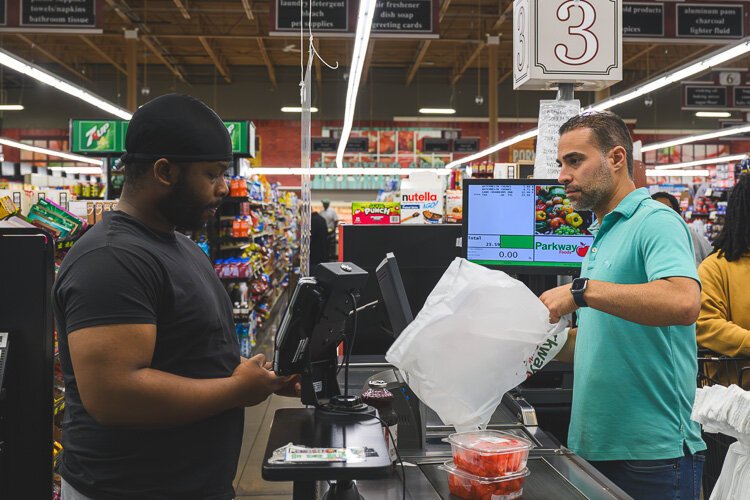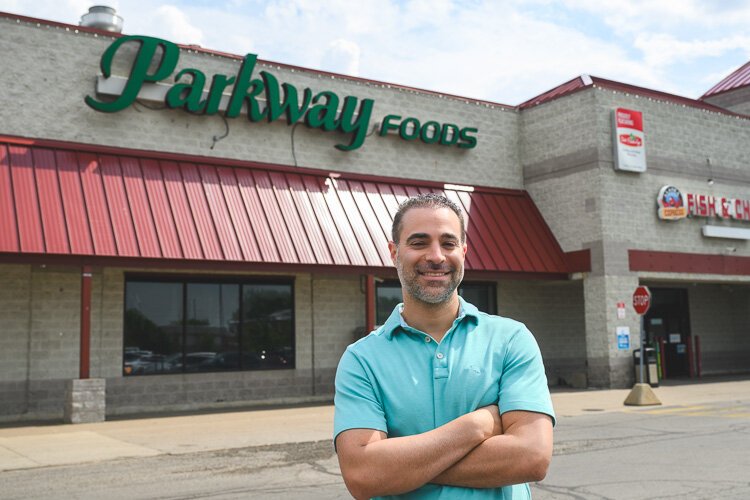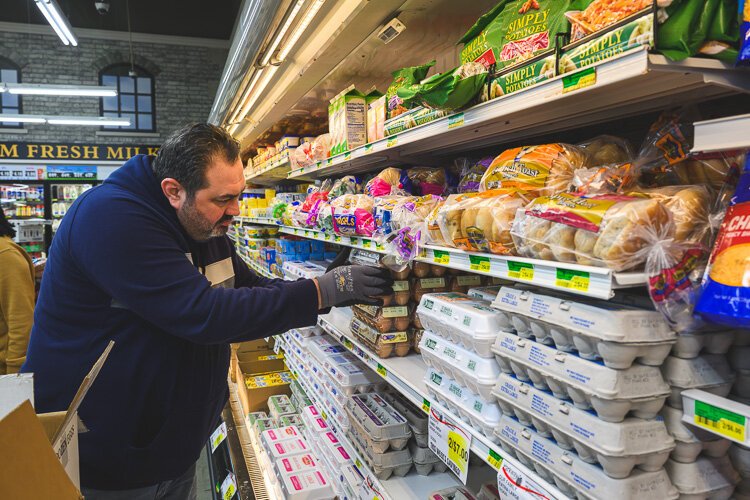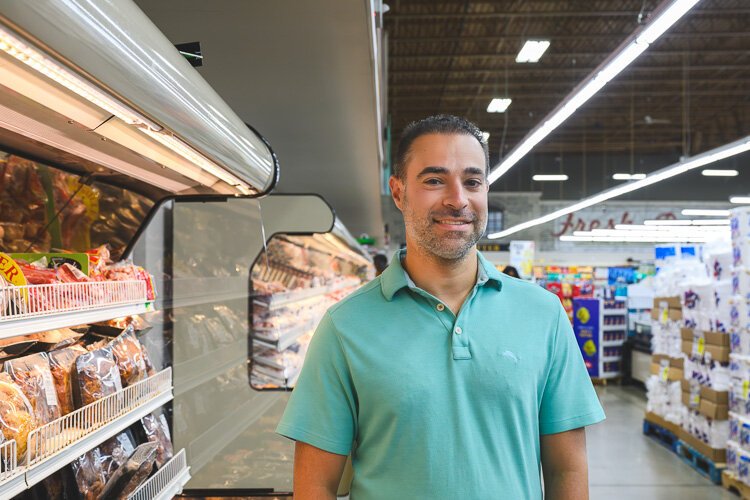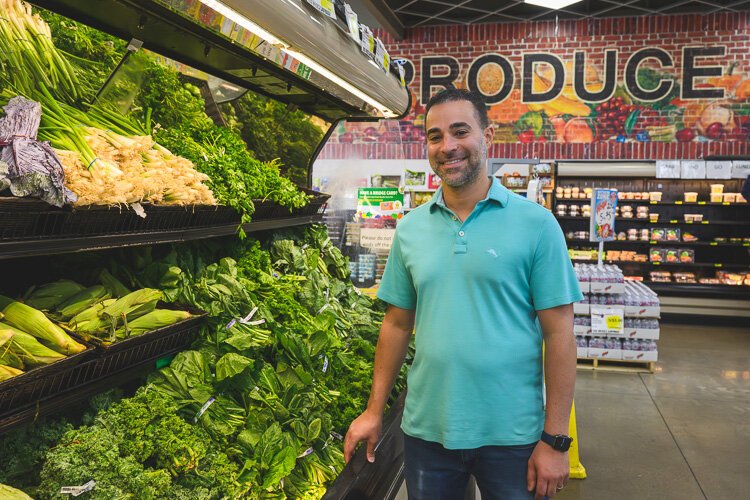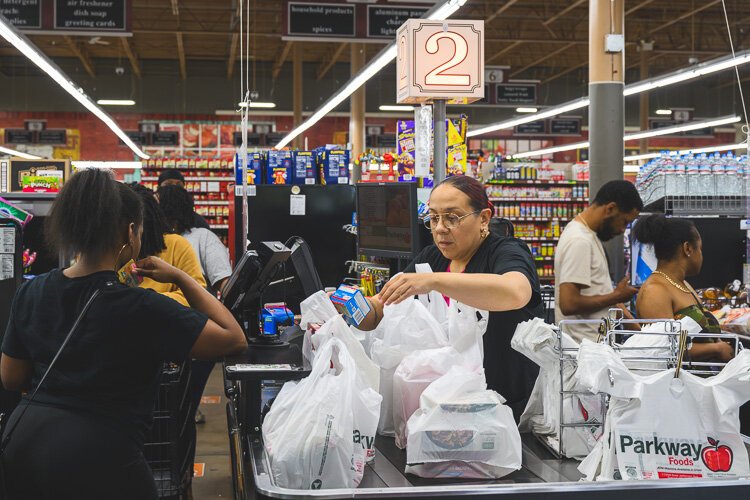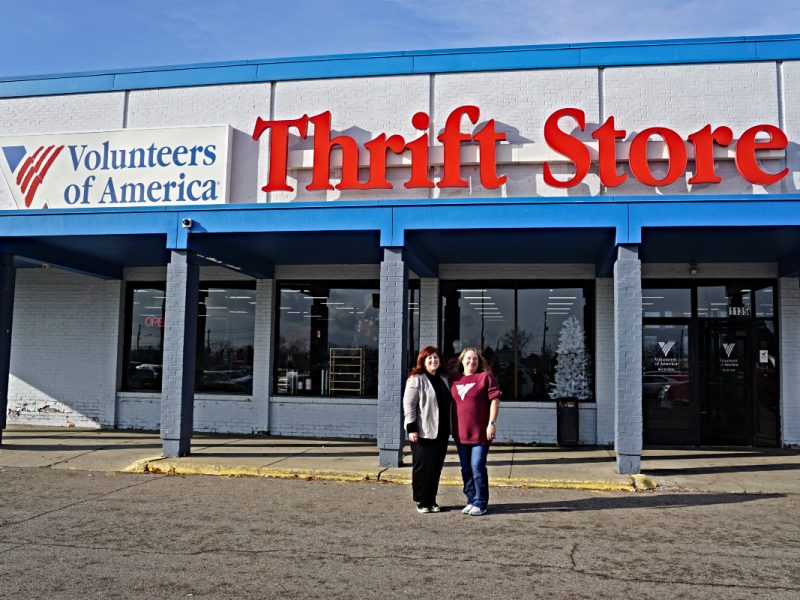Making ‘great’ grocery stores in Detroit
How Detroit’s Food Policy Council is helping local grocery stores up their healthy offerings.
Imagine the impact if your local grocery store not only kept its prices as low as possible, but also redesigned its store promotions to encourage healthy foods, such as placing those foods near checkout aisles and adding shelf tags that identify healthy items, with accompanying recipe cards to create healthy meals?
Your store would help its community become healthier and inspire its competitors to adopt the same ideas.
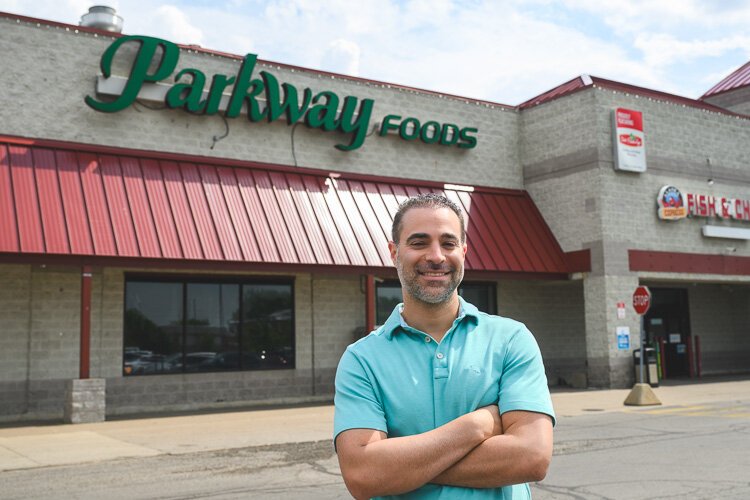
Vincent Nona stands in front of Parkway Foods.
That’s what the Great Grocer Project (GGP) and the Detroit Grocery Coalition (DGC) have been working toward since 2016.
The GGP is a community-based program to improve the retail food environment and strengthen relationships between independently owned grocery stores and their customers in Detroit. It is a joint initiative by Wayne State University, California State University San Marcos, the Detroit Food Policy Council (DFPC), and members of the DGC.
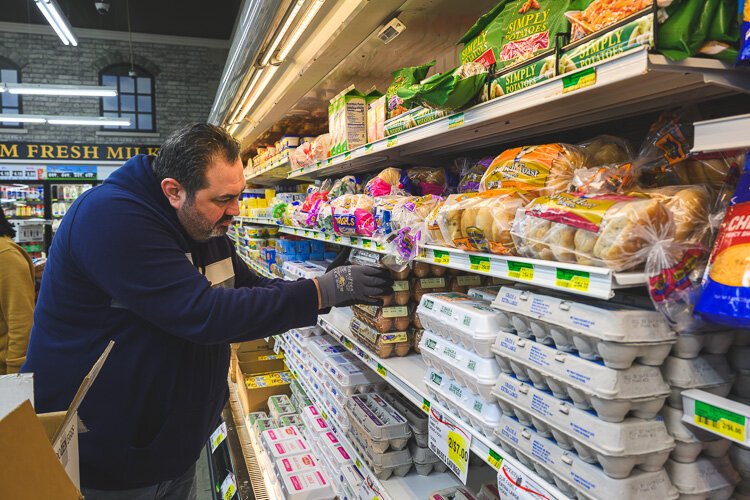
Renan Bashi stocks eggs at Parkway Foods.
The DGC, created in 2016, is a collaborative of organizations working to improve the grocery landscape within Detroit. Led by the DFPC, the coalition facilitates the GGP with the goal of advancing health equity and economic vitality in Detroit by helping grocers provide equitable access to high-quality, healthy food.
Promotion, engagement, and marketing
The GGP has three primary components: healthy grocer promotion, community engagement, and healthy food marketing.
The healthy grocer promotion provides a rating system that uses a common standard to evaluate stores, allowing the coalition to compare stores across the city. Stores can achieve five “carrots” in the categories of healthy food availability, healthy food quality, healthy food affordability, customer service and safety, and community engagement.
The community engagement component has led to the development of a toolkit that improves neighborhood involvement in store promotion and operations.
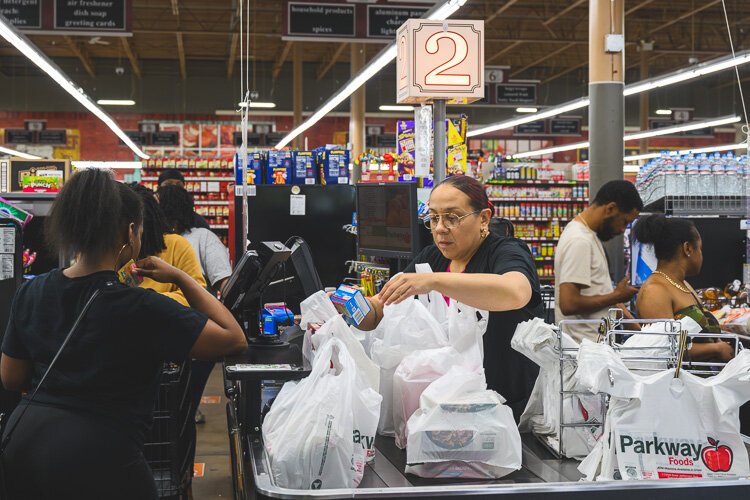
Nia Morris rings up customers at Parkway Foods.
The healthy food marketing aspect helps stores with marketing and promotion of healthy foods, as well as developing other incentives that support local stores.
Alyssa Beavers, an assistant professor in the Department of Nutrition and Food Science at Wayne State University, says that in 2020, the U.S. Department of Agriculture awarded a grant to fund the Great Grocer Project.
“Since I have started (in 2022), we have rolled out what we call the healthy food marketing initiative in a handful of stores,” she says. “This involved putting ‘healthy item’ tags on specific foods that meet particular nutritional criteria, putting up posters related to these tags, and creating recipe cards.”
The nutritional criteria for the healthy item tags is based on the American Heart Association’s heart check guidelines.
“We are currently planning the marketing for the next round of stores we go into. We also updated the list of the top 25 grocery stores in Detroit based on data such as the availability of healthy foods and the relative price of healthier to less healthy options.”
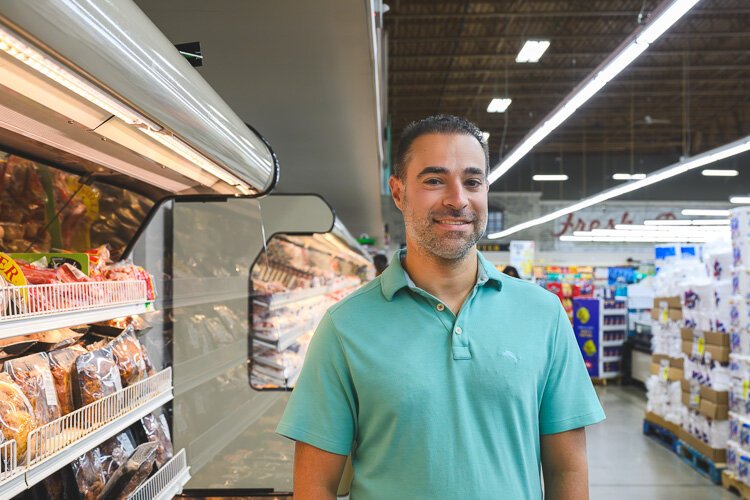
Vincent Nona stands in the Parkway Foods store.
This USDA Community Food Projects grant funded all components of the Great Grocer Project. The Michigan Department of Health and Human Services has provided grant dollars as well. The GGP has received several more grants that have helped fund an employee wellness program as well as expand work into Grand Rapids, Lansing, and Flint.
Making the Top 25 List
The DFPC’s website promotes 25 stores every cycle—and it takes a lot of work to collect the data to create this list.
“Students are in the stores working to assess their healthy food offerings, collecting surveys from customers and store staff, and interviewing store owners/managers to see how we can improve the healthy retail landscape throughout the city,” says Rachael Dombrowski, assistant professor in the College of Education, Health, and Human Services at California State University San Marcos, who previously worked for Wayne State University and became involved in grocery work in Detroit in 2016.
“We also have a number of students working with 10 stores to highlight and redesign store promotions to promote healthy foods. For example, if you walk into Parkway Foods, you should see some healthy promoted foods placed near checkout aisles and shelf tags that identify healthy items with accompanying recipe cards to create healthy meals. This is meant to counteract the constant barrage of unhealthy food marketing that happens in the majority of food retailers.”
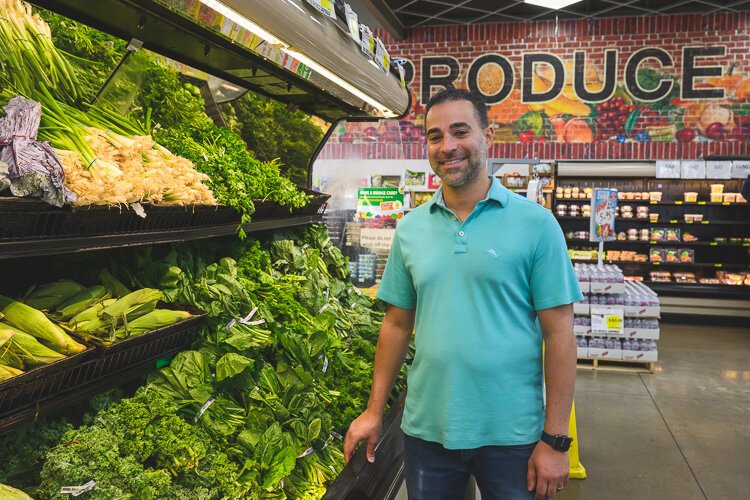
Vincent Nona stands in the produce section of Parkway Foods store.
While data is still being analyzed, many positive anecdotes have been received from customers and community members. In addition, the community impact of the GGP has already shown create job opportunities for local residents, including youth; promoted economic mobility of local grocers; improved procurement of healthy, quality, local produce; increased consumer relationships with grocers; increased consumption of healthy foods; and built local capacity to work with grocers.
“I am proud of and encouraged by the changes that I see in the stores that are a part of the project and work with Detroit Grocery Coalition,” says Winona Bynum, executive director of the DFPC. “I see a heightened emphasis on making sure the healthy options the community wants are provided, best-by dates on items are monitored more closely, and the relationship between the businesses and the community has been strengthened in many cases.”
Bynum looks forward to better supporting new stores and working with more of the existing stores. She is excited to see similar work being done throughout the state and will support those efforts by sharing any lessons learned from her organization’s work.
Dombrowski adds to those goals.
“We want to complete the implementation of healthy food marketing in the remaining stores (five are left to complete), improve healthy eating behaviors among Detroiters, and improve 25% of the grocery retail environments in the city. We are almost there.”
Photos by Doug Coombe.
This story is part of a series that explores access, equity, and sustainability through Good Food in Michigan’s thriving food economy. This work is made possible by Michigan Good Food and is supported by the W.K. Kellogg Foundation.

